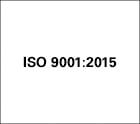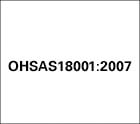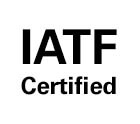Chinese (Simplified)
Turkish
Swedish
Slovak
Romanian
Polish
Dutch
Italian
Hungarian
French
Finnish
Spanish
English
German
Danish
Czech
Combining more than 30 years of experience with cutting edge capabilities, Bodycote has developed specialised treatments to provide corrosion protection and improve component wear resistance. We maintain the highest production standards for quality, safety and efficiency, holding an extensive list of accreditations from key global customers, platforms, and standard agencies across all market sectors.
Some of our national and international accreditations are listed below. Please use the contact us tool to find out exact accreditations to satisfy your specific application.
|
MedAccred MedAccred, administered by Performance Review Institute (PRI), is an industry managed approach to ensuring critical manufacturing process quality throughout the medical device supply chain. It establishes stringent consensus audit criteria based on industry and specific OEM requirements that ensure compliance and quality. Adherence to these requirements leads to greater process discipline, operational efficiency and ongoing improvement which results in higher quality and performance. |
 |
ISO 9001:2015 Latest version Quality Management Systems Standard – however it is more focused on the overall business process rather than specifically on quality systems. The standard adopted a new approach to systems management looking at how processes within the business relate and interact rather than looking at specific areas in isolation. The standard is driven by the concept of a recurring cycle – Plan – Do – Check – Act – to drive the business through a process of continual improvement. |
 |
ISO 14001 Environmental Management System Standard is similar in other aspects to the requirements of ISO 9001:2015 but targeted specifically at environmental issues particularly those aspects of the organisation or business which impact on the environment and which the business can control. ISO 14001 specifies the requirements for an environmental management system to allow an organisation to formulate policy and objectives taking into account legislative requirements. The system is based on the Plan – Do – Check – Act cycle and has a similar process approach to ISO 9001:2015 to which it is closely linked. |
 |
OHSAS18001:2007 OHSAS 18001 is the internationally recognised assessment specification for occupational health and safety management systems. It was developed by a selection of leading trade bodies, international standards and certification bodies to address a gap where no third-party certifiable international standard exists. The following key areas are addressed by OHSAS 18001:
|
 |
IATF 16949:2016 IATF16949:2016 issued June 2016 and aligns automotive quality system standards within the global automotive industry. It specifies the quality system requirements for the design/development, production, installation and servicing of automotive-related products. It is based on the ISO 9001 and was prepared by the International Automotive Task Force (IATF) and the “Technical Committee” of ISO harmonising the country-specific regulations of Quality-Management-Systems. Aim of the standard is to improve the system and process quality to increase customer satisfaction, to identify problems and risks in production process and supply chain, to eliminate its causes and to examine taken corrections and preventive measures for their effectiveness. The focus lies not on the discovery, but on the avoidance of errors. |
 |
ILO-OSH 2001 ILO-OSH 2001 provides a unique international model, compatible with other management system standards and guides. It is not legally binding and not intended to replace national laws, regulations and accepted standards. It reflects ILO values such as tri-partism and relevant international standards including the Occupational Safety and Health Convention, 1981 (No. 155) and the Occupational Health Services Convention, 1985 (No. 161). Its application does not require certification, but it does not exclude certification as a means of recognition of good practice if this is the wish of the country implementing the Guidelines. The ILO Guidelines encourage the integration of OSH-MS with other management system and state that OSH should be an integral part of business management. While integration is desirable, flexible arrangements are required depending on the size and type of operation. |
 |
AS9100 Aerospace Standard for Aerospace Quality Systems is the Aerospace equivalent of the Automotive Industry specification IATF 16949. Requiring a Management system accredited to ISO 9001:2015 the AS9100 standard has additional requirements over and above those of ISO 9001:2015 and requires that suppliers demonstrate that they provide products or services which consistently meet customer and regulatory body requirements, and that the aim is for customer satisfaction through the effective application of continual improvement to ensure conformity to customer and regulatory body requirements. |
 |
AIAG CQI-9:2020 Revision 4 Special Process: Heat Treat System Assessment The goal of the Heat Treatment System Assessment (HTSA) is the development of a heat treat management system that provides for continual improvement, emphasising defect prevention and the reduction of variation and waste in the supply chain. The HTSA, coupled with an internationally recognised quality management system and applicable customer-specific requirements, defines the fundamental requirements for heat treat management systems. The HTSA is intended to provide a common approach to a heat treat management system for automotive production and service part organizations. |
 |
Nadcap Heat Treating Formerly an acronym for National Aerospace and Defence Contractors Accreditation Program, Nadcap is now a ‘brand name’ for the accreditation process supported by SAE through the PRI – the Performance Review Institute – Nadcap has been operational in the USA since 1990. Nadcap is an industry-managed approach to conformity assessment of “special processes” that brings together technical experts from prime contractors, suppliers and representatives from government to work together and establish requirements for approval of suppliers using a standardised approach. Nadcap Heat Treating is based on the AC7102 series of checklists which include:
|
 |
Nadcap Coatings Nadcap is the leading worldwide cooperative program of major companies designed to manage a cost-effective consensus approach to special processes & products and provide continual improvement within the aerospace & automotive industries. Nadcap provide a series of recognised performance accreditation programs for specialist processes. Nadcap Coatings is based on the AC7109 checklist which includes the following:
|
 |
Nadcap Welding Through a membership group of prime contractors Nadcap provides independent certification of manufacturing processes for the industry. Nadcap’s parent organisation, PRI, has as a mission to “provide international, unbiased, independent manufacturing process and product assessments and certification services for the purpose of adding value, reducing total cost, and facilitating relationships between primes and suppliers”. Nadcap has established an accreditation that includes Welding. The Welding Task Group has developed process specific requirements based on the AC7110 series of checklists, which includes the following:
|
 |
Nadcap Hot Isostatic Pressing In June 2011, the Nadcap Management Committee (NMC) balloted for the creation of a new Heat Treating audit checklist. AC7102/6 has been in the works for the past two years and was approved in June 2011 as a new checklist for Hot Isostatic Pressure (HIP). The reason for developing this new checklist revolves around casting of metal parts for engines. Whenever a part is cast, the metal poured into the mold will cool, leaving small air pockets within it. In many cases this will not be problematic. Given the conditions of flight, such as the high velocity of these planes or the extreme temperatures they endure, however, a high level of scrutiny and standards of quality must be applied. |
|
AMS Standards Standards from SAE International are used to advance mobility engineering throughout the world. The SAE Technical Standards Development Program is now-and has been for nearly a century-among the organization’s primary provisions to those mobility industries it serves: aerospace, automotive, and commercial vehicle. Today’s SAE standards product line includes almost 10,000 documents created through consensus standards development by more than 240 SAE Technical Committees with 450+ subcommittees and task groups. These works are authorised, revised, and maintained by the volunteer efforts of more than 9,000 engineers, and other qualified professionals from around the world. Standards held by Bodycote include:
|
|
NORSOK M-650, Rev. 3 The NORSOK standards are developed by the Norwegian petroleum industry to ensure adequate safety, value adding and cost effectiveness for petroleum industry developments and operations. Furthermore, NORSOK standards are as far as possible intended to replace oil company specifications and serve as references in the authorities’ regulations. The NORSOK standards are normally based on recognised international standards, adding the provisions deemed necessary to fill the broad needs of the Norwegian petroleum industry. |
Combining more than 30 years of experience with cutting edge capabilities, Bodycote has developed specialised treatments to provide corrosion protection and improve component wear resistance. We maintain the highest production standards for quality, safety and efficiency, holding an extensive list of accreditations from key global customers, platforms, and standard agencies across all market sectors.
Some of our national and international accreditations are listed below. Please use the contact us tool to find out exact accreditations to satisfy your specific application.
|
MedAccred MedAccred, administered by Performance Review Institute (PRI), is an industry managed approach to ensuring critical manufacturing process quality throughout the medical device supply chain. It establishes stringent consensus audit criteria based on industry and specific OEM requirements that ensure compliance and quality. Adherence to these requirements leads to greater process discipline, operational efficiency and ongoing improvement which results in higher quality and performance. |
 |
ISO 9001:2015 Latest version Quality Management Systems Standard – however it is more focused on the overall business process rather than specifically on quality systems. The standard adopted a new approach to systems management looking at how processes within the business relate and interact rather than looking at specific areas in isolation. The standard is driven by the concept of a recurring cycle – Plan – Do – Check – Act – to drive the business through a process of continual improvement. |
 |
ISO 14001 Environmental Management System Standard is similar in other aspects to the requirements of ISO 9001:2015 but targeted specifically at environmental issues particularly those aspects of the organisation or business which impact on the environment and which the business can control. ISO 14001 specifies the requirements for an environmental management system to allow an organisation to formulate policy and objectives taking into account legislative requirements. The system is based on the Plan – Do – Check – Act cycle and has a similar process approach to ISO 9001:2015 to which it is closely linked. |
 |
OHSAS18001:2007 OHSAS 18001 is the internationally recognised assessment specification for occupational health and safety management systems. It was developed by a selection of leading trade bodies, international standards and certification bodies to address a gap where no third-party certifiable international standard exists. The following key areas are addressed by OHSAS 18001:
|
 |
IATF 16949:2016 IATF16949:2016 issued June 2016 and aligns automotive quality system standards within the global automotive industry. It specifies the quality system requirements for the design/development, production, installation and servicing of automotive-related products. It is based on the ISO 9001 and was prepared by the International Automotive Task Force (IATF) and the “Technical Committee” of ISO harmonising the country-specific regulations of Quality-Management-Systems. Aim of the standard is to improve the system and process quality to increase customer satisfaction, to identify problems and risks in production process and supply chain, to eliminate its causes and to examine taken corrections and preventive measures for their effectiveness. The focus lies not on the discovery, but on the avoidance of errors. |
 |
ILO-OSH 2001 ILO-OSH 2001 provides a unique international model, compatible with other management system standards and guides. It is not legally binding and not intended to replace national laws, regulations and accepted standards. It reflects ILO values such as tri-partism and relevant international standards including the Occupational Safety and Health Convention, 1981 (No. 155) and the Occupational Health Services Convention, 1985 (No. 161). Its application does not require certification, but it does not exclude certification as a means of recognition of good practice if this is the wish of the country implementing the Guidelines. The ILO Guidelines encourage the integration of OSH-MS with other management system and state that OSH should be an integral part of business management. While integration is desirable, flexible arrangements are required depending on the size and type of operation. |
 |
AS9100 Aerospace Standard for Aerospace Quality Systems is the Aerospace equivalent of the Automotive Industry specification IATF 16949. Requiring a Management system accredited to ISO 9001:2015 the AS9100 standard has additional requirements over and above those of ISO 9001:2015 and requires that suppliers demonstrate that they provide products or services which consistently meet customer and regulatory body requirements, and that the aim is for customer satisfaction through the effective application of continual improvement to ensure conformity to customer and regulatory body requirements. |
 |
AIAG CQI-9:2020 Revision 4 Special Process: Heat Treat System Assessment The goal of the Heat Treatment System Assessment (HTSA) is the development of a heat treat management system that provides for continual improvement, emphasising defect prevention and the reduction of variation and waste in the supply chain. The HTSA, coupled with an internationally recognised quality management system and applicable customer-specific requirements, defines the fundamental requirements for heat treat management systems. The HTSA is intended to provide a common approach to a heat treat management system for automotive production and service part organizations. |
 |
Nadcap Heat Treating Formerly an acronym for National Aerospace and Defence Contractors Accreditation Program, Nadcap is now a ‘brand name’ for the accreditation process supported by SAE through the PRI – the Performance Review Institute – Nadcap has been operational in the USA since 1990. Nadcap is an industry-managed approach to conformity assessment of “special processes” that brings together technical experts from prime contractors, suppliers and representatives from government to work together and establish requirements for approval of suppliers using a standardised approach. Nadcap Heat Treating is based on the AC7102 series of checklists which include:
|
 |
Nadcap Coatings Nadcap is the leading worldwide cooperative program of major companies designed to manage a cost-effective consensus approach to special processes & products and provide continual improvement within the aerospace & automotive industries. Nadcap provide a series of recognised performance accreditation programs for specialist processes. Nadcap Coatings is based on the AC7109 checklist which includes the following:
|
 |
Nadcap Welding Through a membership group of prime contractors Nadcap provides independent certification of manufacturing processes for the industry. Nadcap’s parent organisation, PRI, has as a mission to “provide international, unbiased, independent manufacturing process and product assessments and certification services for the purpose of adding value, reducing total cost, and facilitating relationships between primes and suppliers”. Nadcap has established an accreditation that includes Welding. The Welding Task Group has developed process specific requirements based on the AC7110 series of checklists, which includes the following:
|
 |
Nadcap Hot Isostatic Pressing In June 2011, the Nadcap Management Committee (NMC) balloted for the creation of a new Heat Treating audit checklist. AC7102/6 has been in the works for the past two years and was approved in June 2011 as a new checklist for Hot Isostatic Pressure (HIP). The reason for developing this new checklist revolves around casting of metal parts for engines. Whenever a part is cast, the metal poured into the mold will cool, leaving small air pockets within it. In many cases this will not be problematic. Given the conditions of flight, such as the high velocity of these planes or the extreme temperatures they endure, however, a high level of scrutiny and standards of quality must be applied. |
|
AMS Standards Standards from SAE International are used to advance mobility engineering throughout the world. The SAE Technical Standards Development Program is now-and has been for nearly a century-among the organization’s primary provisions to those mobility industries it serves: aerospace, automotive, and commercial vehicle. Today’s SAE standards product line includes almost 10,000 documents created through consensus standards development by more than 240 SAE Technical Committees with 450+ subcommittees and task groups. These works are authorised, revised, and maintained by the volunteer efforts of more than 9,000 engineers, and other qualified professionals from around the world. Standards held by Bodycote include:
|
|
NORSOK M-650, Rev. 3 The NORSOK standards are developed by the Norwegian petroleum industry to ensure adequate safety, value adding and cost effectiveness for petroleum industry developments and operations. Furthermore, NORSOK standards are as far as possible intended to replace oil company specifications and serve as references in the authorities’ regulations. The NORSOK standards are normally based on recognised international standards, adding the provisions deemed necessary to fill the broad needs of the Norwegian petroleum industry. |
© 2024 Bodycote

